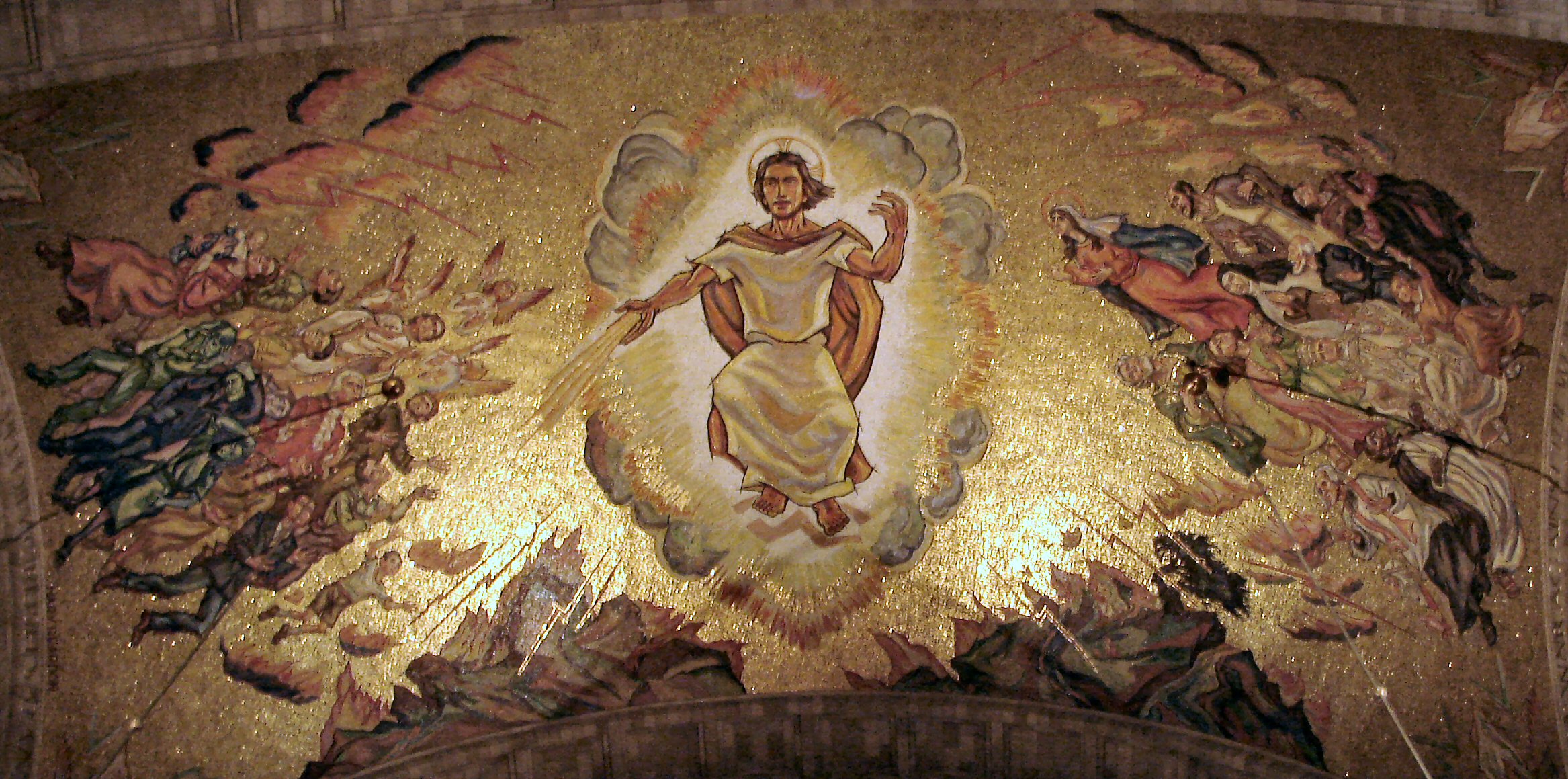
The End Of The World
by Rev. Albert F. Ernst, O.S.F.S.
People adopt various attitudes toward the end or conclusions of uncertain affairs. Certainly, the housewife is happy to see the end of cleaning and washing; the laborer is relieved to put down his pick and shovel when the whistle blows; the student breaths a sigh of relief when he finally untangles a knotty problem. But, as much as we like difficult affairs to come to a happy ending, we do not welcome the conclusion of other things. The vacationer hates to board up the bungalow and hustle back to a stuffy office. The reader is not anxious to come to the end of an exciting and interesting novel. Two friends dislike saying goodbye after a lively recollection of days gone by. But whether we like to see endings or not, be they pleasant or unpleasant, we know they are bound to come.
Then, too, there is another feature about some endings. They may worry us because at their end there is a reckoning. The schoolboy, who has played more than he studied, does not welcome the end of the school term because he knows he will fail. The salesman, who has not made the contacts and sales he could have, if he had tried a little harder, can expect reproof. For the shirker in any line of work, the day of reckoning becomes a nightmare. At its approach, he becomes panicky, while the person who works conscientiously at his job does not fear the approach of the day of reckoning. As a matter of fact, he welcomes it, because, the end crowns the work.

Today's Gospel speaks about an end, the end of the world, to which there is attached a reckoning. Is our attitude one of fear or welcome. I'm sure that the sinners of the world have a jumble fear in their hearts of the Judge and the judgment. By their evil and wicked lives they have separated themselves from God. These people cannot say that God didn't give them a chance. If they look closely at how they lived, they will have to admit that the path they took was deliberate, and of their own choosing. The promptings of the Holy Ghost were rejected. The outstretched hand of God was spurned. No one forced them to be drunkards, liars, or adulterers. Weak human nature may have misled them now and then, but the overall picture is one of deliberation, of selecting self and pleasure instead of God. No wonder then, that when the accounting before the just Judge is due, the sinner trembles.
How different is the good-living person's attitude towards the end of the world, the Judge and judgment. There will be natural fear at the smashing of the earth to bits, but if we are living Christ-like lives our reaction should be joyful. We can exclaim, "Thank God, it's all over. My Savior is coming to bring me home. This is not a time of punishment, but a time of reward. This is no Judge who comes, but a friend." The good person has lived intimately with Christ. He knew God's will and obeyed it. His life, all of it, was spent in forming himself to the image of Christ. Why should such a soul fear the judgment? There is no reason at all.
The contrast between the sinner and saint is tremendous. But God alone knows who the saint is and who is the sinner. When we visit a cemetery and look at the names carved in stone, all we know is that faded flesh and crumbling bones are beneath our feet. We whisper a prayer for all buried in the cemetery. We know that some of these are in heaven, some are in purgatory, and some may be in hell. Wherever those souls may be, they cannot harm us. However, if these souls are in purgatory or heaven they can help us. Some day we too will be beneath a stone and people will whisper prayers for us. But while alive, God wants us to do our part, for He was not jesting when He made the dreadful prediction of the world's end. Accordingly, are we using the golden moments entrusted to our care so that out of them we may fashion the endless years of a happy eternity, or are we wasting our time, our talents and our lives.